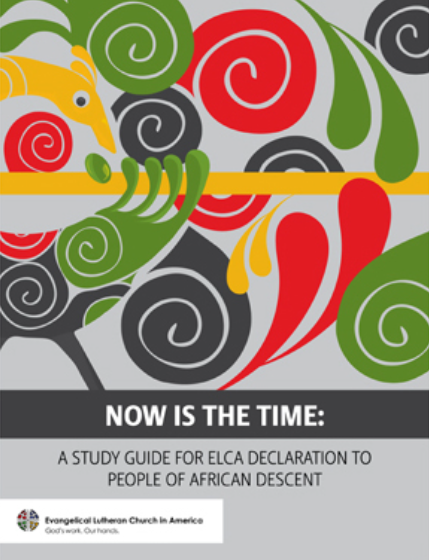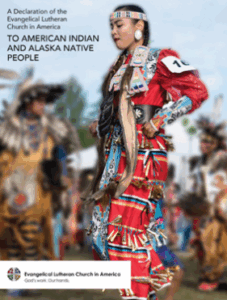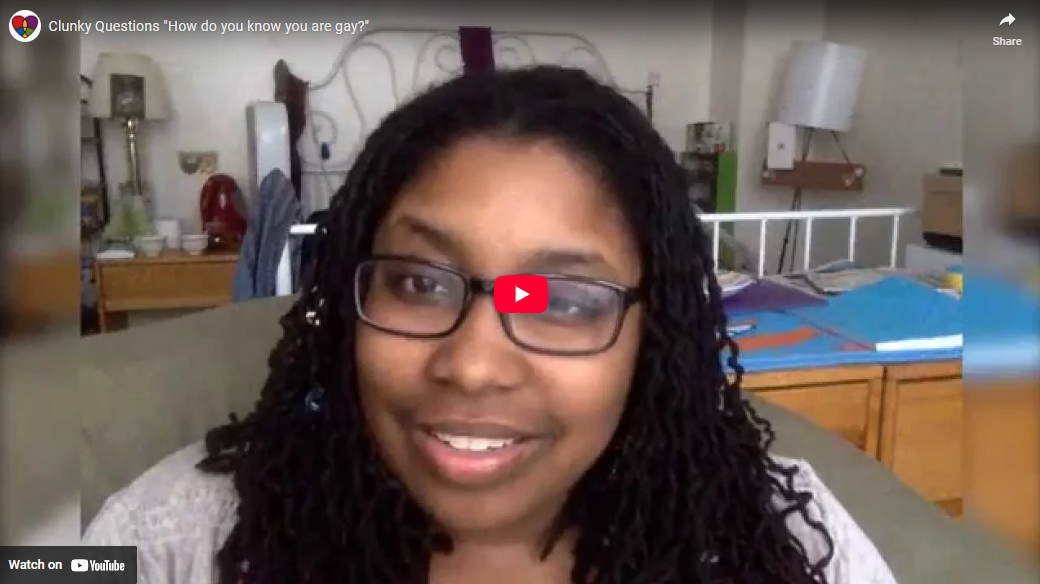Racial Justice and Dismantling White Supremacy
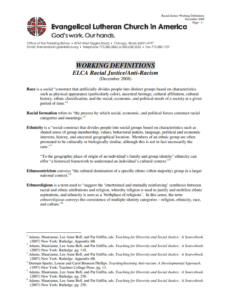 Reference this ELCA Working Definitions PDF around Racial Justice and Anti-Racism - including race, racial formation, ethnicity, and more.
Reference this ELCA Working Definitions PDF around Racial Justice and Anti-Racism - including race, racial formation, ethnicity, and more.
Now is the Time: Declaration of the ELCA to People of African Descent
This Declaration is an acknowledgment of the church’s complicity in slavery and the perpetuation of systemic racism. This study guide focuses on deepening understanding of that history and engaging white people in conversation on the meaning and impact of slavery and systemic racism. Throughout this study, participants reflect on the different sections of the study guide and reflect on videos created by young adult BIPOC leaders in our church.
Now is the Time: A Study Guide
Now is the Time: Participant Materials
Now is the Time: Explanation
A Declaration of the ELCA to American Indian and Alaska Native People
In 2021, Church Council approved A Declaration of the ELCA to American Indian and Alaska Native People on behalf of the ELCA. The declaration consists of a confession of institutional sin and a pledge to take action to change policies and practices. It addresses Indigenous ELCA communities, Indigenous communities in the U.S., and non-Indigenous ELCA communities. This Declaration is presented as part of the implementation and in obedience to the 2016 ELCA Churchwide Assembly mandate:
“To repudiate explicitly and clearly the European-derived doctrine of discovery as an example of the ‘improper mixing of the power of the church and the power of the sword’ (Augsburg Confession Article XXVIII, Latin text), and to acknowledge and repent from this church’s complicity in the evils of colonialism in the Americas, which continue to harm tribal governments and individual tribal members.”
Repudiation of the Doctrine of Discovery
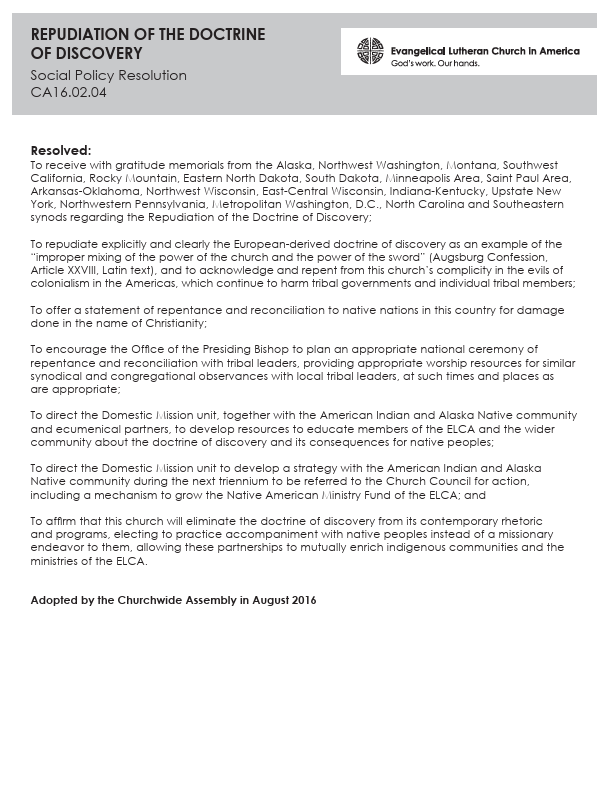 Additionally, in 2016 the representative Churchwide Assembly adopted (by a vote of 912 to 28) the Repudiation of the Doctrine of Discovery memorial, making the ELCA the second major denomination in the United States to repudiate the Doctrine of Discovery.
Additionally, in 2016 the representative Churchwide Assembly adopted (by a vote of 912 to 28) the Repudiation of the Doctrine of Discovery memorial, making the ELCA the second major denomination in the United States to repudiate the Doctrine of Discovery.
Members of the ELCA believe that Christ’s church is not ours to control, nor is it our job to sort, divide, categorize or exclude. Our faith liberates us to embrace each person in their wholeness — questions, complexities, ethnicity, culture and all. Ministries of Diverse Cultures and Communities assists the ELCA in becoming more culturally diverse and anti-racist by working with ELCA congregations, synods, communities, agencies and institutions. The team provides consultation, programming and resources to help accomplish this work to which the ELCA is called.
The Ministries of Diverse Cultures and Communities team works within the ELCA toward the goal of full partnership and participation of African Descent, American Indian and Alaska Native, Arab and Middle Eastern, Asian and Pacific Islander and Latino people in the life of this church.
AMMPARO (Accompanying Migrants with Protection, Advocacy, Representation and Opportunities) as an acronym is inspired by the word “amparo” in Spanish, which means the protection of a living creature from suffering or damage. AMMPARO is the ELCA’s strategy for responding to the ongoing need for support and advocacy for minors. It was envisioned after witnessing the plight of children who are forced to flee their communities because of complex and interrelated reasons, including chronic violence, poverty, environmental displacement and lack of opportunities in El Salvador, Honduras and Guatemala. Read the AMMPARO Blog, too.
Note: Information about legal rights and processes is not a substitute for advice from a lawyer. Laws may vary by state.
Know Your Rights
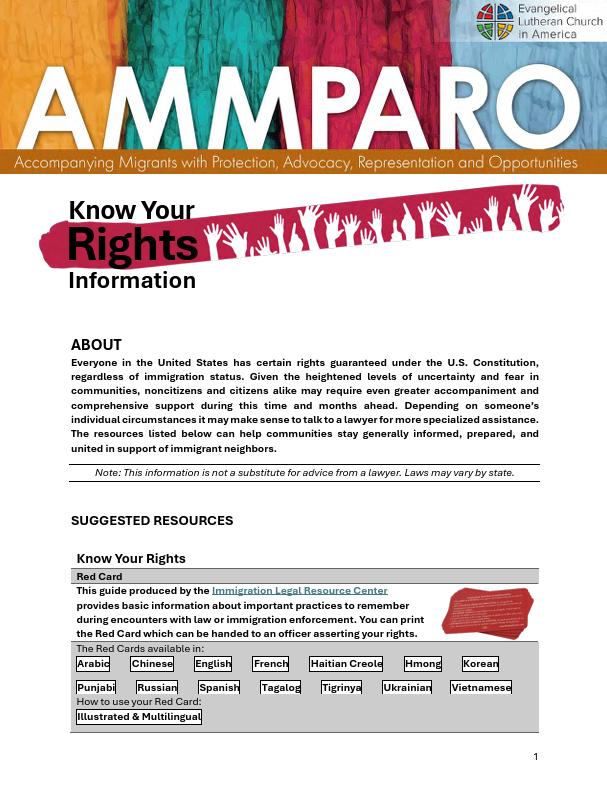 Everyone in the United States has certain rights guaranteed under the U.S. Constitution, regardless of immigration status. Given the heightened levels of uncertainty and fear in communities, noncitizens and citizens alike may require even greater accompaniment and comprehensive support during this time and the months ahead. Depending on someone’s individual circumstances it may make sense to talk to a lawyer for more specialized assistance. Know Your Rights 2025 resources can help communities stay generally informed, prepared, and united in support of immigrant neighbors. There you will also find printable "Red Cards" providing basic information about important practices to remember during encounters with law or immigration enforcement.
Everyone in the United States has certain rights guaranteed under the U.S. Constitution, regardless of immigration status. Given the heightened levels of uncertainty and fear in communities, noncitizens and citizens alike may require even greater accompaniment and comprehensive support during this time and the months ahead. Depending on someone’s individual circumstances it may make sense to talk to a lawyer for more specialized assistance. Know Your Rights 2025 resources can help communities stay generally informed, prepared, and united in support of immigrant neighbors. There you will also find printable "Red Cards" providing basic information about important practices to remember during encounters with law or immigration enforcement.
Note: Information about legal rights and processes is not a substitute for advice from a lawyer. Laws may vary by state.
Evangelical Lutheran Church in America
"One Body Many Members: A journey for Christians across race, culture and class" is an online video-based resource developed by the ELCA. It is a faith-based journey of discovery to learn, share and proclaim God’s intention of oneness among people of every racial, ethnic and class background. How do we find that unity in a world as diverse as ours? How can we build up “one body” as strong as that?
These video and study guide materials (study guide materials are found in Part 2 and Part 3) will lead you through the lands of race, culture and class in the United States, to meet God every step of the way. You will practice skills you need to know to speak the language of welcome and show actions of caring. You will sense more clearly God’s purpose for you in today’s world.
The “ELCA Guidelines for Ministry in a Multi-Religious World (PDF)” aims to help faith communities in the United States navigate ecumenical and interfaith relationships while living out a Christian vocation in a multi-religious world. As Lutherans in North America, we have a remarkable opportunity to live out our Christian vocation in a multi-religious world. No matter where we live, the realities of religious diversity are not “out there,” but in our daily lives with our families, in our congregations, communities, and at work. Our ministries – whether as pastors, deacons, or lay people – are shaped by the religious diversity in our midst.
In 2022, this resource was announced in an Ecumenical and Inter-Religious blog and it provides a way for our ministries to also be shaped for our multi-religious context.
 Evangelical Lutheran Church in America
Evangelical Lutheran Church in America
One of the commitments to the indigenous peoples of Turtle Island made by the ELCA is to formally acknowledges the original inhabitants of North America and to provide a resource about land acknowledgements for faith communities.
Vance Blackfox, Director for Indigenous Ministries and Tribal Relations with the ELCA, prepared a Land Acknowledgement Guide [PDF] for faith communities with leaders who wish to begin a journey toward truth and healing by practicing land acknowledgments. It includes examples of statements that you can speak at the beginning of every worship service, print at the top of worship bulletins, use to create outdoor signage, and more. Learn more about the ELCA Indigenous Ministries and Tribal Relations.
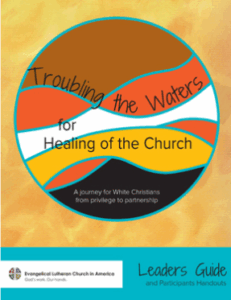 Evangelical Lutheran Church in America
Evangelical Lutheran Church in America
Troubling the Waters is a group study and discussion curriculum that invites all participants to who we are individually, as a faith community, and as a national church. It begins and ends in imagery and language about baptism because in that sacrament, water, together with God’s Word of promise, is cleansing and healing as we are bathed in God’s grace in Christ. Yet these waters are also troubling, for in them each day the power and privilege to which we have become so accustomed is put to death.
Troubling the Waters is a tool that can help participants begin a journey where we are raised to new life in Christ, reconciled to each other; we are set free in faith to work for justice and peace; we are actively engaged in the issues instead of passive, unknowing participants in systems that perpetuate power and privilege; and, we are asked to become partners in the relentless pursuit of a more just world.
Troubling the Waters: Full Version
Troubling the Waters: Participant’s Guide
Troubling the Waters: Leader’s Guide
Freed in Christ: Race, Ethnicity, and Culture, adopted by the ELCA’s Churchwide Assembly in 1993, is a social statement that lays out the church’s calling to celebrate culture and ethnicity. This statement commits the ELCA as a national church to confront racism in the following ways:
- To engage in public leadership, witness, and deliberation
- To advocate for justice and fairness for all people.
The statement is grounded in the conviction that the reign of God [the blessed community] announced by and embodied in Jesus breaks down all dividing walls as we live into that promise. In daily life, cultural, ethnic and racial differences matter, but they can be seen and celebrated as what God intends them to be – blessings rather than means of oppression and discrimination. We are a church that belongs to Christ, which means we are to be a place for everyone as Christ is for everyone. Christ’s church is not ours to control, nor is it our job to sort, divide, categorize or exclude.
Equity in the Center (EIC) is a non-profit that works to shift mindsets, practices and systems in the social sector to center race equity and build a Race Equity Culture™ within communities, businesses, churches, and other organizations. EIC manages Racial Equity Tools, a resource with 5000+ tools that have been curated and found useful. The organization strives to help society envision a future where nonprofit and philanthropic organizations focus on proactive counteraction of social inequities because it’s become part of their culture, not because they are checking off boxes as part of a goal. To build a future where white supremacy and privilege are dismantled within all social sector organizations, institutional and structural racism need to be challenged and eliminated at all levels until race equity has been achieved within organizations, across the social sector, and in communities.
For more than 40 years Race Forward, founded in 1981 as the Applied Research Center, has worked to dismantle structural racism by building collective community power and transforming institutions. From the start, Race Forward’s founder Gary Delgado was clear: Black and brown communities hold the key to solving the racial inequities in our systems that have long harmed the lives and communities of people of color.
Through systemic analysis and an innovative approach to complex race issues, Race Forward helps people take effective action toward racial equity. Race Forward works across communities most affected by systemic racism to build collective power for racial equity.
Race Forward houses the Government Alliance on Race and Equity (GARE), a network of local, regional, and state government jurisdictions across the country working to achieve racial equity in their policies and practices; and also Colorlines, a multimedia political home for everyday activists seeking to deepen our understanding of the societal structures that govern our lives and to connect with others to build the movement power needed to actualize a just multiracial democracy.
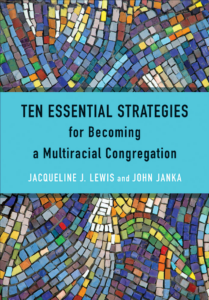 Ten Essential Strategies for Becoming a Multiracial Congregation
Ten Essential Strategies for Becoming a Multiracial Congregation
by Jacqueline J. Lewis
How do churches build immunity from racial and ethnic tensions that threaten to divide rather than unite congregations? Jacqui Lewis and John Janka believe that the answer lies in the development of multiracial, multicultural communities of faith. Born of the authors’ work with The Middle Project, an institute that prepares ethical leaders for a more just society, this book is a collection of wisdom and best practices.
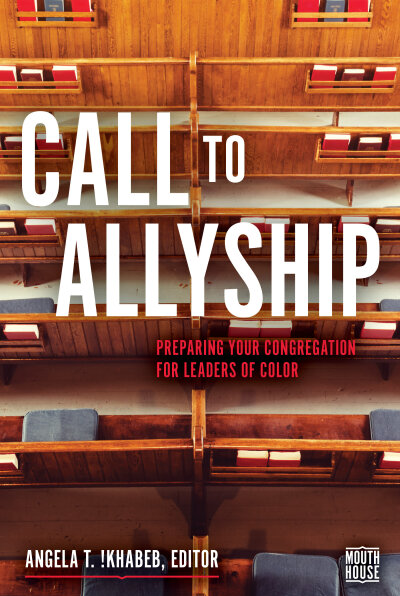 Call to Allyship: Preparing Your Congregation for Leaders of Color
Call to Allyship: Preparing Your Congregation for Leaders of Color
by Angela T. !Khabeb
How can churches do the work of becoming allies for the leaders they call? In belonging to a predominantly white denomination, ELCA members are called to listen and learn from its leaders of color to recognize the assumptions, biases, and harmful actions that result when congregations don’t commit to become allies. Authors offer wisdom, storytelling, and concrete suggestions for churches preparing to call a leader of color. Call to Allyship is a must-read for call committees, church councils, social justice teams, and anyone prepared to do the work of understanding, welcoming, and celebrating these leaders.
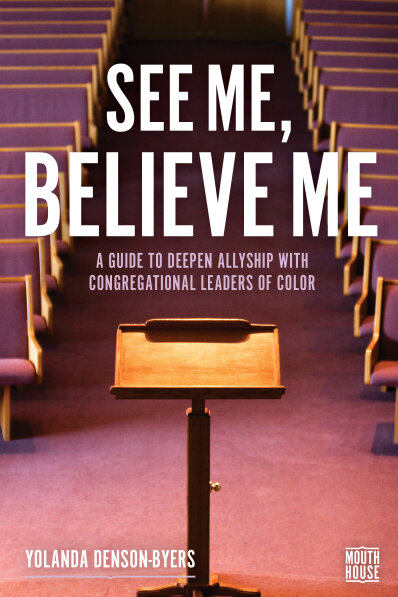 See Me, Believe Me: A Guide to Deepen Allyship with Congregational Leaders of Color
See Me, Believe Me: A Guide to Deepen Allyship with Congregational Leaders of Color
by Yolanda Denson-Byers
In See Me, Believe Me, Rev. Dr. Yolanda Denson-Byers draws from the wisdom and experience she has gained—and the racism she has endured—as a female, Black, and queer pastor in the Evangelical Lutheran Church in America (ELCA). Through storytelling, biblical reflection, and colleague interviews, Denson-Byers offers an honest and unflinching look at the challenges faced by leaders of color in the predominantly white ELCA. See Me, Believe Me is the essential follow-up to Call to Allyship: Preparing Your Congregation for Leaders of Color, another title in the Mouth House series of books that amplify voices for change.
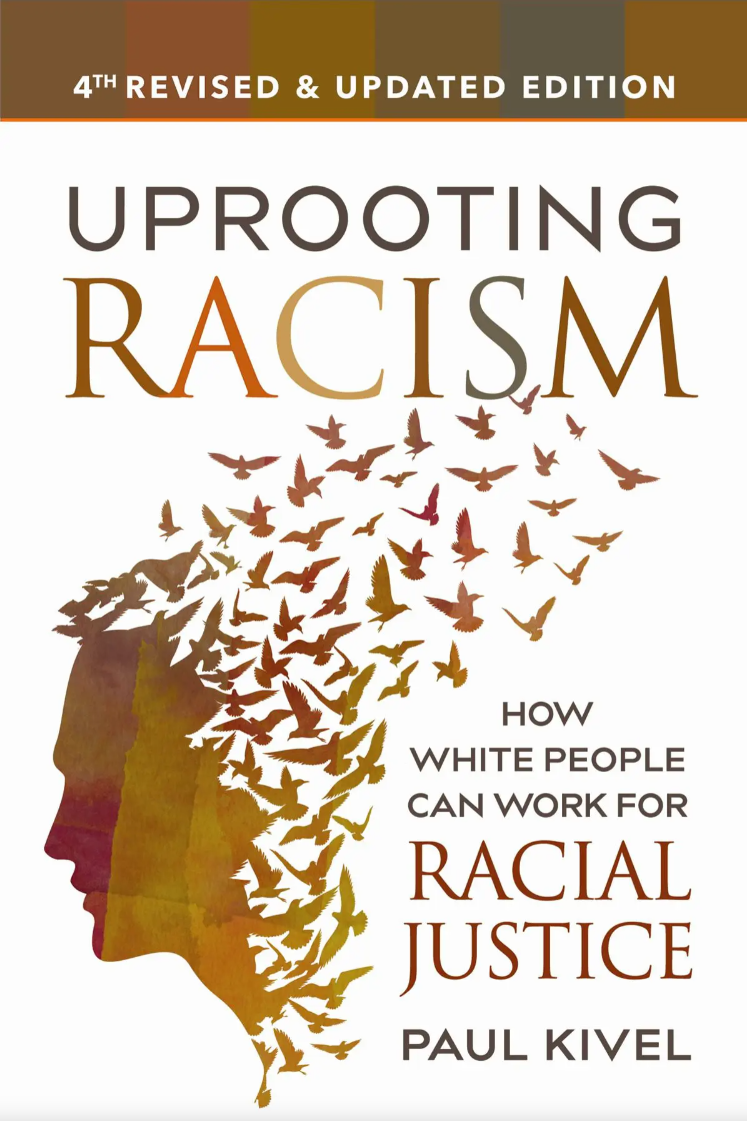 Uprooting Racism - 4th Edition: How White People Can Work for Racial Justice
Uprooting Racism - 4th Edition: How White People Can Work for Racial Justice
by Paul Kivel
There’s a long tradition of white people opposing racism-but there are also many excuses we give for not getting involved. Uprooting Racism is the supportive, practical go-to guide for helping white people work with others for equal opportunity, democracy, and justice in these divisive and angry times. Completely revised and updated, this fourth edition of Uprooting Racism offers a framework around neoliberalism and interpersonal, institutional, and cultural racism, along with stories of resistance and white solidarity. It provides practical tools and advice on how white people can work as allies for racial justice, engaging the reader through questions, exercises, and suggestions for action, and includes a wealth of information about specific cultural groups such as Muslims, people with mixed heritage, Native Americans, Jews, recent immigrants, Asian Americans, and Latino/as.
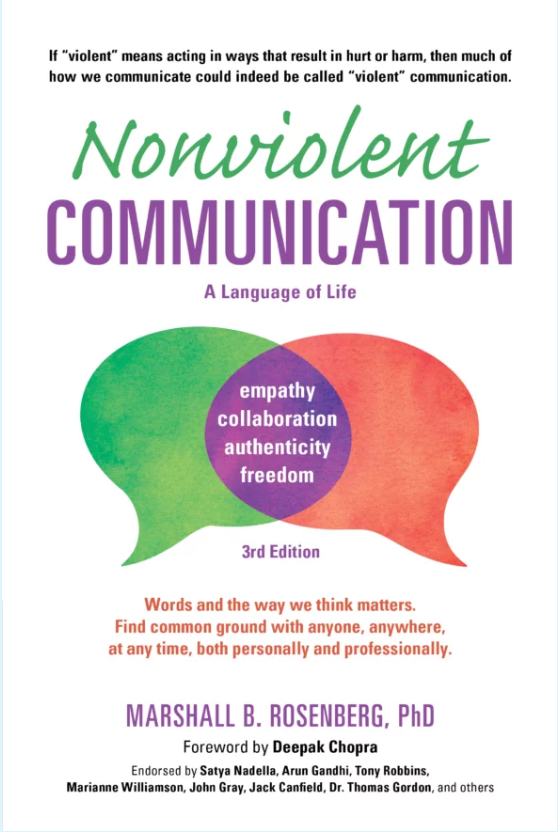 Nonviolent Communication: A Language of Life
Nonviolent Communication: A Language of Life
by Marshall B. Rosenberg PhD
Life-Changing Tools for Healthy Relationships: Nonviolent Communication is the integration of four things: Consciousness (a set of principles that support living a life of compassion, collaboration, courage, and authenticity), Language (understanding how words contribute to connection or distance), Communication (knowing how to ask for what we want, how to hear others even in disagreement, and how to move toward solutions that work for all), and Means of influence (sharing “power with others” rather than using “power over others”). Nonviolent Communication serves our desire to do three things: Increase our ability to live with choice, meaning, and connection; connect empathically with self and others to have more satisfying relationships; and sharing of resources so everyone is able to benefit.
Advocacy for LGBTQIA+ Communities
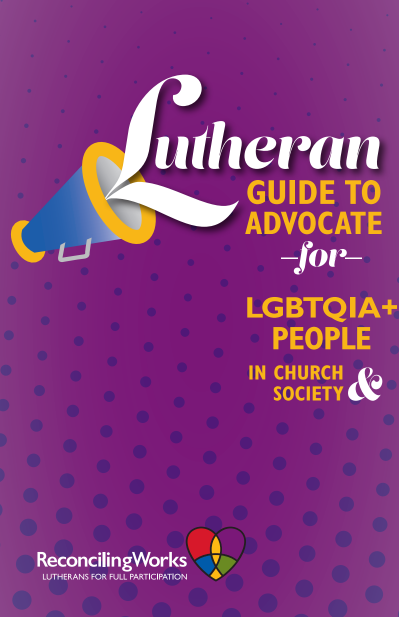
Lutheran Guide to Advocate for LGBTQIA+ People in Church and Society
ReconcilingWorks Resource
This book is a starting point for you and your Lutheran faith community as it seeks to advocate for lesbian, gay, bisexual, transgender, queer, intersex, and asexual/aromantic (LGBTQIA+) people in church and society. It is ReconcilingWorks’ hope that tools and answers in this guide will give your community the boldness to proclaim Christ’s gospel of radical inclusion and hospitality to your neighbors, our church, and our world. Christ and Lutherans are called to care for everyone, against discrimination and marginalization, and work for justice.
Purchase the physical book or a printable PDF.
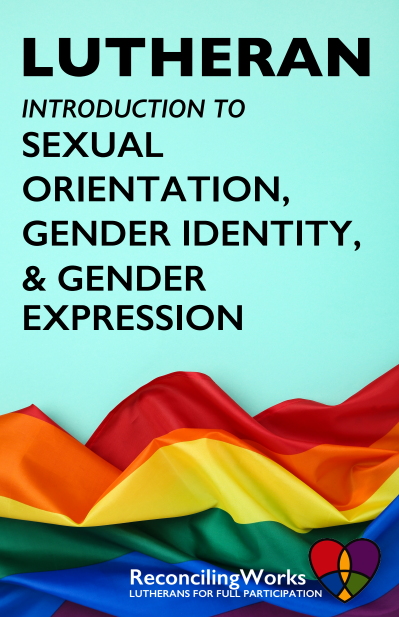
Lutheran Introduction to Sexual Orientation, Gender Identity, & Gender Expression
ReconcilingWorks Resource
This is a basic introduction to sexual orientation, gender identity, and gender expression. ReconcilingWorks offers this resource as a way to deepen and expand your community's welcome. From the book: People Over Definitions - If you don’t know which identity terms, pronouns or titles to use, and find yourself getting “stuck” on terms, re-center yourself on the fact you are talking about a person. It is also ok to ask which pronouns one prefers, or just avoid using gendered terms. Remember, all you need to welcome someone is their name.
Purchase the physical book or a printable PDF in English or Español.
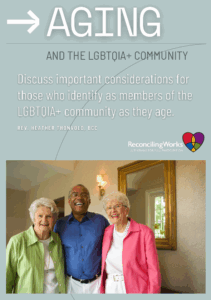 Aging and the LGBTQIA+ Community
Aging and the LGBTQIA+ Community
ReconcilingWorks Resource
Aging and the LGBTQIA+ Community by Rev. Heather Thonvold, BCC, discusses the important considerations for those who identify as LGBTQIA+ people as they age. This free ReconcilingWorks resource helps accompany family, friends, and caregivers as they navigate conversations around care needs for their loved ones. While walking through documentation, choosing care settings, and legacy planning, this resource can provide the tools needed for these meaningful conversations.
Clunky Questions: LGBTQIA+ Lutherans and Pastors Answer Common Questions
ReconcilingWorks Resource
In the work of full inclusion, people with good intentions often feel that they can’t ask any questions about what it means to be LGBTQIA+ because they are afraid of offending someone or they don't have the right words with which to ask. If this sounds familiar, or if your faith community is interested in learning more about LGBTQIA+ people so they can figure out how to better support LGBTQIA+ people, then the Clunky Questions video series is for you.
The LGBTQIA+ Rights & Safety Card is designed as a preparation tool to help you think ahead, stay aware, and feel more confident navigating situations where safety, rights, or personal well-being may be at risk. It offers key reminders, practical steps, and resource connections to support you in moments of uncertainty.
This card is not a legal document or a substitute for professional legal advice. Instead, it serves as a quick, accessible guide to help you prepare, stay grounded, and know where to seek help when needed. Always consult qualified legal professionals or advocacy organizations for specific legal guidance.
This document includes your rights at a glance, what to do if you're stopped/detained/harassed, and more. Page three is for printing and carrying with you.
Here is a practical resource on digital safety for protesters, based on guidance from the American Civil Liberties Union (ACLU) and other expert-sources. This is not legal advice, but rather a set of best-practices to help you think through how to stay safer online and offline when exercising your rights to protest
Movement Advancement Project [MAP]
In An Ally's Guide to Terminology, we learn that the words we use to talk about lesbian, gay, bisexual and transgender (LGBT) people and issues can have a powerful impact on our conversations. The right words can help open people’s hearts and minds, while others can create distance or confusion. Designed for new allies who want to support LGBT Americans but often face an array of confusing terminology and language, this free short guide offers an overview of essential vocabulary, terms to avoid, and a few key messages for talking about various issues.
ReconcilingWorks Resources
Bathroom Bills Frequently Asked Questions
A bathroom bill is legislation that seeks to allow or ban transgender individuals from using public facilities, particularly bathrooms, that correspond to their gender identity rather than to the sex they were assigned at birth.
Letter to the Editor Guide
Writing a letter to the editor of a newspaper is a great way to get out a message defending LGBTQIA+ folks against discrimination. Some of the tips in this guide can also be used for posting on social media, writing a blog, posting a vlog, etc.
Religious Freedom & Equality Act Frequently Asked Questions
Freedom of religion is one of our most fundamental rights as Americans and is protected in the very First Amendment in the U.S. Constitution. However, "Religious Exemption Protections" in the "Equality Act" are being used to allow an individual to use their religious beliefs to discriminate against others by denying them goods and services.
The Movement Advancement Project (MAP) tracks over 50 different LGBTQ-related laws and policies. A map shows the overall policy tallies (as distinct from sexual orientation or gender identity tallies) for each state, the District of Columbia, and the five populated U.S. territories. A state’s policy tally scores the laws and policies within each state that shape LGBTQ people's lives, experiences, and equality. The major categories of laws covered by the policy tally include: Relationship & Parental Recognition, Nondiscrimination, Religious Exemptions, LGBTQ Youth, Health Care, Criminal Justice, and Identity Documents.
Proyecto Avance del Movimiento | Movement Advancement Project [MAP]
Latinos and Hispanics are solid supporters of fair and equal treatment for LGBT people. In the Movement Advancement Project's free PDF download, Talking About LGBT Equality with Latinos & Hispanics / Conversando con latinos sobre temas y personas gays, focuses on four key shared values - family, respect, faith, and opposition to discrimination - that form the foundation of effective conversations with Latino audiences. The guide also provides approaches for discussions that build support for marriage: a focus on shared values of family and fairness, and the importance of illustrating the harms of denying marriage to gay couples.
ReconcilingWorks Resource
The 2016 Evangelical Lutheran Church in America Churchwide Assembly passed two resolutions related to Gender Identity. The Extending Hospitality to People of All Gender Identities and Gender Expressions resource seeks to provide guidance to synods and the churchwide organization as it employs more inclusive language in different contexts.
Equality Federation is an advocacy accelerator rooted in social justice, building power through a network of state-based lesbian, gay, bisexual, transgender, and queer (LGBTQ+) advocacy organizations. It works collaboratively on critical issues - from advancing workplace fairness and family recognition to defeating anti-transgender bathroom bans and HIV criminalization laws - that affect how LGBTQ people experience the world from cradle to grave. Together with its partners, the Equality Federation works on cross-cutting issues impacting our community such as racial equity, reproductive justice, and immigration.
The American Psychological Association task force conducted a systematic review of the peer-reviewed journal literature on sexual orientation change efforts (SOCE) and concluded in its 2009 report that efforts to change sexual orientation are unlikely to be successful and involve some risk of harm, contrary to the claims of SOCE practitioners and advocates. Read the full "Report of the APA Task Force on Appropriate Therapeutic Responses to Sexual Orientation".
Advocates for Trans Equality (A4TE) created the Trans Legal Survival Guide 2.0, compiled of information to help the trans community navigate changing regulations and advocate for themselves and their networks.
Like all young people, LGBTQ youth have dreams, goals, struggles, triumphs, good days, and bad ones. They want to be embraced by their family, peers, and wider communities for who they are, as they are. Like all young people, LGBTQ youth need safety, community, and support, and they deserve peace and joy. But for LGBTQ youth in particular, their surroundings do not always grant this — and instead they often face significant social and structural obstacles, from stigma and isolation to discriminatory laws and leaders.
The report "In Their Own Words: Learning from LGBTQ Youth Experiences to Tell a New Story" was published by the Movement Advancement Project (MAP) in partnership with Advocates for Trans Equality (A4TE), Advocates for Youth, Equality Federation, GLSEN, PFLAG National, and The Trevor Project. This report offers a holistic picture of the lived experiences of LGBTQ young people. By combining new insights on who LGBTQ youth are and examining how social dynamics and public policy shape their lives, this comprehensive report expands our understanding of an often overlooked but frequently debated community. Like all youth, LGBTQ young people’s lives are shaped by certain key areas, which include:
- their home and family
- their broader community
- their experiences in school
- their access to health care
In Their Own Words... details how LGBTQ youth can experience both acceptance and rejection across all of these areas, and how the impacts of both often ripple outward to shape experiences in other parts of their lives. Centering on stories by and from LGBTQ youth, the report also offers key recommendations on how to best support LGBTQ youth and ensure they can thrive.
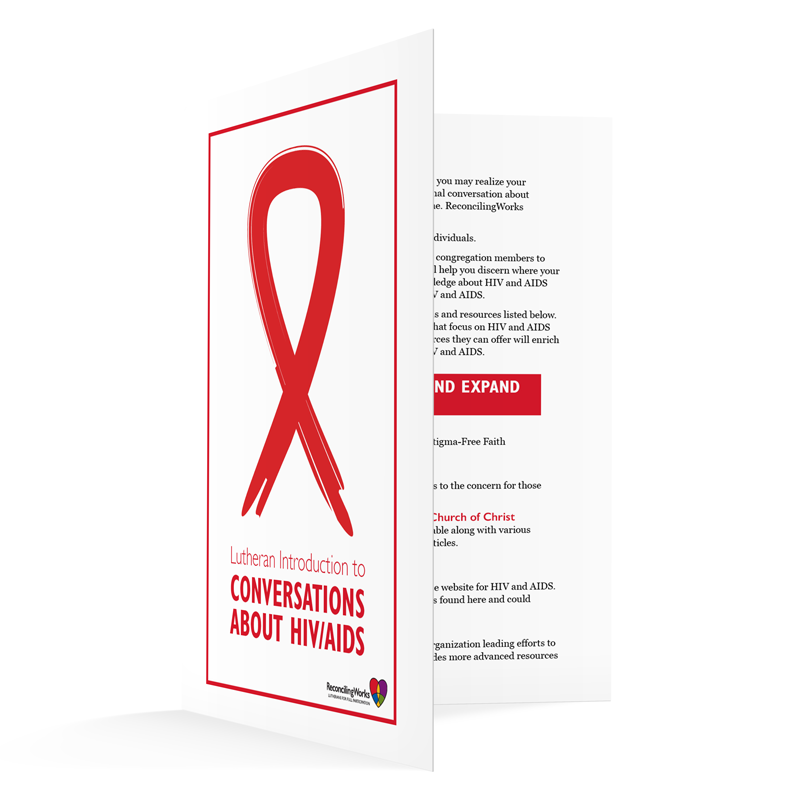 Inspired by ReconcilingWorks' engagement at the 21st International AIDS Conference, Lutheran Introduction to Conversations About HIV/AIDS will help your Reconciling in Christ (RIC) community discern how to be a more hospitable space for those living with HIV and AIDS.
Inspired by ReconcilingWorks' engagement at the 21st International AIDS Conference, Lutheran Introduction to Conversations About HIV/AIDS will help your Reconciling in Christ (RIC) community discern how to be a more hospitable space for those living with HIV and AIDS.
Purchase a printable PDF here.
Transmission Ministry Collective is an online community dedicated to the spiritual care, faith formation, and leadership potential of transgender and gender-expansive Christians. TMC believes that people of all gender identities and expressions are fully loved by God and should be supported at every level by their Christian siblings, and as an organization it will always advocate for every individual’s right to self-identify and to choose any processes which bring them into alignment with themselves.
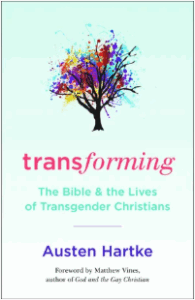 Transforming: The Bible and the Lives of Transgender Christians
Transforming: The Bible and the Lives of Transgender Christians
by Austen Hartke; Updated and Expanded Edition with Study Guide
In 2014, Time magazine announced that America had reached "the transgender tipping point," suggesting that transgender issues would become the next civil rights frontier. Years later, many people – even many LGBTQIA+ allies – still lack an understanding of gender identity and the transgender experience. Into this void, trans biblical scholar Austen Hartke brings a biblically based, educational, and affirming resource to shed light and wisdom on gender expansiveness and Christian theology. This new edition offers updated terminology and statistics, plus new materials for congregational study, preaching, and pastoral care. Transforming deftly weaves ancient and modern stories that will change the way readers think about gender, the Bible, and the faith to which Jesus calls us. Hartke helps readers visualize a more inclusive Christianity, equipping them with the language, understanding, confidence, and tools to change both the church and the world.
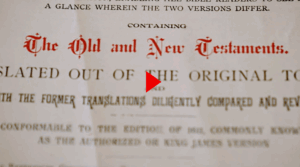 1946: The Mistranslation that Shifted Culture
1946: The Mistranslation that Shifted Culture
Sharon “Rocky” Roggio, Director; Daniel Karslake, Producer
This feature documentary reveals how anti-LGBTQIA+ policies and propaganda were made possible by a mistranslation of the Bible in 1946 when a group of men worked on what became the Revised Standard Version translation of scripture. For the first time in any language the word “homosexual” was used to translate words in a list of things Christians couldn’t do . . . or be. It chronicles the discovery of archives at Yale University that cast significant doubt on the linguistic basis for LGBTQIA+ prejudice in Christians. It features interviews and commentary from Biblical scholars as well as opposing pastors, including the personal stories of the film’s creators. 1946 is at once challenging, enlightening, and inspiring. The film is available for group screenings via the film's website and for individual rentals via online video retailers. Download the filmmaker’s Workbook and Discussion Guide or ReconcilingWorks’ 1946 Reflection Questions to help you process, ponder, and create clarity.
CAUTION: For many Queer folk growing up in the final three decades of the 20th century, there may be portions of this film that trigger big feelings and memories that are traumatic.
Advocacy for People Living with Disabilities & Neurodiversity
Recognizing that people with intellectual and developmental disabilities have faith needs and desires similar to anyone else, the ELCA Disability Ministry has a collection of different resources intended to help faith communities as they minister to people with disabilities. They have Spirit-given gifts to offer, and they are individuals who want to worship God and use their gifts to build up the body of Christ. Like all Christians, they want to be included in the kingdom of God. One of the resources is the ELCA’s 2010 social message, "People Living with Disabilities," which focuses on identifying an emphasis on ministry with and for people who are living with disabilities, rather than labeling some people as “handicapped” or “disabled” in comparison to other people.
The title of the 2010 ELCA social message, "People Living with Disabilities," makes a significant point in identifying an emphasis on people who are living with disabilities, rather than categorizing some people as “handicapped” or “disabled.”
Living Lutheran, Interview by Cara Strickland
When poet Daniel Bowman Jr. received an autism diagnosis in his mid-30s, so much suddenly clicked into place. His new book, On the Spectrum: Autism, Faith, and the Gifts of Neurodiversity (Brazos Press, 2021), allows readers to follow his journey as he begins to understand the things that are different, unique and challenging about being a person with autism in a world that isn’t always welcoming to them.
In the Living Lutheran interview, A Neurodiverse Church: An interview with author Daniel Bowman Jr., Bowman, an Episcopalian, shares how he learned the ways he was best suited to serve in his congregation and how the traditional idea of church services is geared toward neurotypical people. Living Lutheran spoke with him about how On the Spectrum can be helpful for those in faith leadership roles as well as anyone seeking to better love their neighbors, however their brains are wired. Living Lutheran is your source for news, reflections and stories from the Evangelical Lutheran Church in America (ELCA) and its local and global companions.
"For children with autism [AKA Autism Spectrum Disorder or ASD], the noise and movement of an average worship service can be challenging. For their families, finding a welcoming church home can be just as difficult. This issue inspired two Pennsylvania congregations, St. Mark, Clifton Heights, and Temple, Havertown, to dedicate this past September’s “God’s work. Our hands.” Sunday to doing their best to change the status quo."
Read the entire article by Krista Webb, "Autism-Friendly Activity Bags for Church" in Living Lutheran, your source for news, reflections and stories from the Evangelical Lutheran Church in America (ELCA) and its local and global companions.
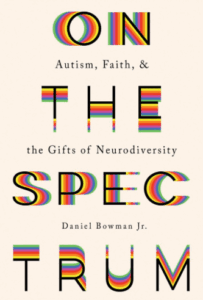 On the Spectrum: Autism, Faith, and the Gifts of Neurodiversity
On the Spectrum: Autism, Faith, and the Gifts of Neurodiversity
by Daniel Bowman, Jr.
This 2021 book debunks myths and shares new insights into autism, relationships, faith, and the gift of neurodiversity. Treating autism as an identity rather than viewing it as a deficiency, Bowman teaches readers--through stories of his heartbreaks and triumphs--authentic ways to love neighbors as themselves, including autistic neighbors who are fearfully and wonderfully, if differently, made. Find the book in multiple formats and a discussion guide on the author’s website.
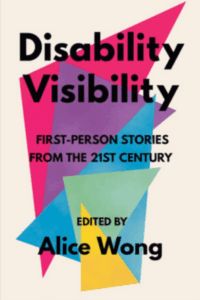 Disability Visibility: First Person Stories from the Twenty-First Century
Disability Visibility: First Person Stories from the Twenty-First Century
Alice Wong, editor
Approximately one in five people in the United States lives with a disability. Some are visible, some are hidden–but all are underrepresented in media and popular culture. Inspired by the thirtieth anniversary of the Americans with Disabilities Act in 2020, writer and activist Alice Wong brings together an urgent, galvanizing collection of personal essays by contemporary disabled writers. Included are Harriet McBryde Johnson’s “Unspeakable Conversations,” which describes her famous debate with Princeton philosopher Peter Singer over her own personhood, s. e. smith’s celebratory review of a work of theater by disabled performers, and original pieces by up-and-coming authors like Keah Brown and Haben Girma. The collection includes blog posts, manifestos, eulogies, and testimonies to Congress. There is also a companion volume for young readers.
Allies Against Bullying
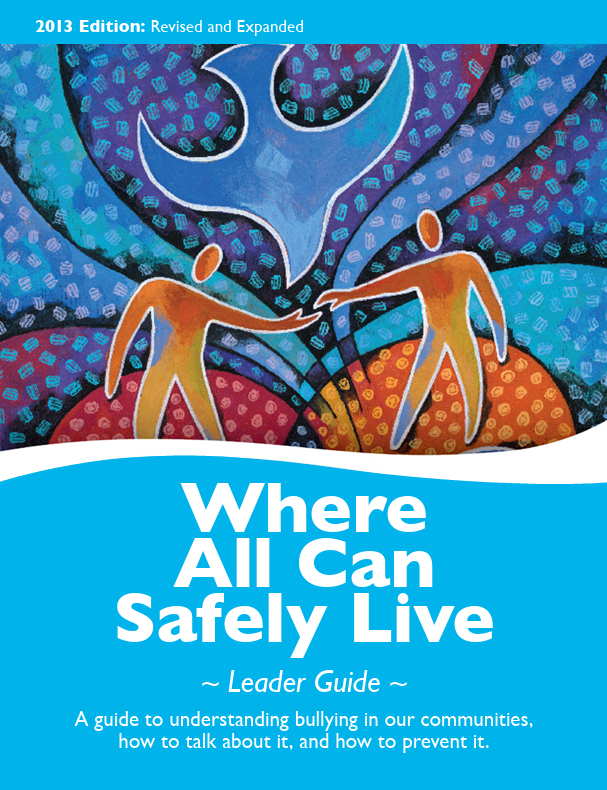 Where All Can Safely Live (Revised and Expanded)
Where All Can Safely Live (Revised and Expanded)
ReconcilingWorks Resource
This anti-bullying curriculum is an introduction to what bullying is, how it functions, and why we as Christians are called to prevent it from happening in our communities. It was developed with the help of the staff at the Pacific Violence Prevention Institute, from the pioneering research on bullying by Dan Olweus, and materials created by the United States government. This curriculum is not intended to be a comprehensive guide to stopping bullying. However, this guide provides a basic understanding of how bullying works and offers suggestions for steps in creating a congregational bullying prevention plan.
The Polarization & Extremism Research & Innovation Lab (PERIL) uses a public health approach to design, test, and scale-up evidence-based tools and strategies that effectively reduce the threat of radicalization to harmful online and offline content including conspiracy theories, mis/disinformation, propaganda, and supremacist ideologies. As an alternative to security-based approaches that rely on surveillance, censorship, and incarceration, their work takes a multidisciplinary and pre-preventative approach to address hate, bias, and radicalization before they manifest into violent extremism. Their work supports individuals and communities to reject propaganda and extremist content, as well as empower them to intervene and interrupt early radicalization.
Faith Leaders & Small Businesses are integral to our society. Building inclusive, resilient democracies that reject hate and violence requires equipping all members of communities with tools to recognize and reject propaganda and protect themselves from harm. Our community tools work to educate parents and caregivers, educators, youth mentors, coaches, mental health counselors, faith communities, small business owners, veterans, local governments, and more about the risks of radicalization, strategies to build off-ramps from violent pathways, ways to support victims, and how to get more help.
ReconcilingWorks Racial Equity Plan
ReconcilingWorks is making a public commitment to increase our intersectional work dedicated to anti-racism and racial equity. ReconcilingWorks Board of Directors along with staff will continue to create a Racial Equity Plan of how we will examine the Four Dimensions of Racism as defined by Raceforward, and how they impact our organization’s racist actions and behaviors. Read more about our Racial Equity Plan here.


